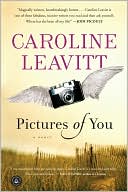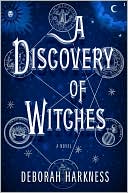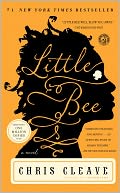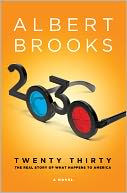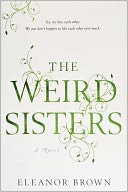Wednesday, September 28, 2011
Ghost Agnostic
I love Stephen King.
This fact often surprises people. I am not the sort of person you'd think of as being a fan of a horror writer, mostly because I'm not a fan of horror stories. At all. I avoid horror movies at all costs and don't read any horror novels that don't have Stephen King's name on the cover. I hate the Saw films without ever having seen them and I don't like zombies even though I've been a Monroeville resident for nearly seven years now.
And yet -- Stephen King. He is, hands-down, my favorite author. But why? How does an author like King appeal to someone who has a general dislike of horror fiction?
King -- with a literary career spanning 40 years, nearly 50 books, and over 350 million copies of his works in print -- is known as America's Horror-Meister. And yet part of my love for his storytelling may stem from the fact that King may not completely deserve the title. ("You can't even be a 'mister' when you write horror," King commented recently. "They downgrade you to 'meister.'")
The first King novel I ever read -- given to me by my mother when I was a high school student -- was The Eyes of the Dragon. It was not a horror story but rather a high fantasy novel, in the vein of George R.R. Martin or Robert Jordan. It took place in the same sort of vaguely-medieval settings that high fantasy novels always seem to take place in, and the story had more to do with magic and family than it did guts and ghosts. True, it did possess some of the trademark darker flares that make up King's style (there's the standard touches of gore and vulgarity, which always strike me as being less about sensationalism and more about King's perspective of the grittiness of life). But for the most part, The Eyes of the Dragon is a fairytale-like fantasy story, less like a horror read and more like a lost volume of Lord of the Rings. (Only, y'know, more interesting; forgive me, but I am not personally a Tolkien fan.)
Speaking of The Eyes of the Dragon, King's magnum opus is also not horror, but rather a crazily epic, science-fiction/high-fantasy blend of a series called The Dark Tower. This seven-book series took nearly 20 years for King to finish and has sold over 30 million copies alone, and was inspired chiefly by the poem "Childe Roland to the Dark Tower Came" by Robert Browning. (This series is particularly notable to die-hard King fans -- like myself -- for being the series which ties many of King's other works together; there are numerous references to other characters and stories from most of King's other novels.)
Of course, King's written plenty of novels that focus on the things that go bump in the night: 'Salem's Lot, The Shining, Pet Sematary, It. But King has a very specific interest in horror, and it's not just about cheap thrills. It is, rather, his fascination in what can happen when "the window between reality and unreality breaks and the glass begins to fly."
One of my favorite King quotes is from the dedication in "It," when he says that, "Fiction is the truth inside the lie." King's horror isn't really about gore and violence for the sake of gore of violence, but rather are gateways to the themes he really likes exploring: how hard it is to close Pandora's box once it's opened, why terrible things happen to good people, the thin line between fantasy and reality. (Check out King's memoir On Writing: A Memoir of the Craft to hear him discuss these themes himself.) And, too, themes about love, family, friendship, and God.
Ultimately, King is an optimist. Can an author be a "Horror-Meister" if he's also an optimist? True, King has said, "Monsters are real, and ghosts are real too. They live inside us, and sometimes, they win." Sometimes, the monsters in King's books win -- but most of the time, his books are about bad things happening to good people and the good people overcoming in the end. The good guys don't always win (Cujo, Bag of Bones, and one of my favorites -- Duma Key -- have victories that come at a price). But most of the time the good guys do win, possibly because, as King himself says in The Shawshank Redemption, "Hope is a good thing. Maybe the best thing, and no good thing ever dies." It's that, more than anything, that makes me such a King fan -- well, that and the fact that he's a crackerjack storyteller. (A King novel, for me, is the very definition of a page-turner; putting one of his books down when I'm in the middle of a great scene is more or less impossible.)
Last weekend, George Mason University presented bestselling author Stephen King with the Mason Award, for his "extraordinary contributions to bringing literature to a wide reading public." It was part of GMU and Fairfax, Virginia's annual "Fall for the Book" festival, a weeklong community event that celebrates authors, readers, books, and literacy.
I was lucky enough to be there. King came out to give a wonderful speech about his experiences as an author (including a delightfully terrible -- or perhaps terribly delightful -- story about the worst place where he'd ever been asked for an autograph). This was followed up by a Q&A session (when asked if he believes in ghosts, King merely answered that he was a "ghost agnostic"), before he was presented with the award.
For me, the thrill of the evening came towards the end of the speech when he read a new passage from his current project, a novel he's titling "Dr. Sleep." If there's anything more awesomely entertaining than getting to hear your favorite author tell you a story, live and in person, I haven't found it yet.
Whether you're a horror fan or not, the world is frequently a scary place. But by writing about the dark places, Stephen King shines a light on the better things. His novels may be frightening, but they're also full of hope -- which might be one of the real reasons King appeals not just to me, but to his millions of Constant Readers.
That, and the fact that, as my mother says -- the man can tell a story.
(Check back next week for Part Two of this entry, where I'll share some of my favorite, horror-lite King reads.)
-- Post by Ms. B
Thursday, September 22, 2011
Pittsburgh's Day of Giving
October 4, 2011
On October 4, all charitable donations made to Monroeville Public Library through the Day of Giving website will receive a portion of The Pittsburgh Foundation's pool of matching funds (totaling $500,000).
You can give to Monroeville Public Library at anytime on that day (from 12:00 a.m. midnight to 11:59 p.m.) to see your donation matched. It's simpler than ever to make a difference -- here's how!
- Go to www.PittsburghGives.org at any time on October 4.
- Click on "Donate Now."
- Enter your name, email address, and phone number in the appropriate boxes.
- From the drop down box, select "Monroeville Public Library Fund."
- Enter the donation amount and your credit card information.
- Click "submit."
And -- that's it! So mark your calendar now for this year's Day of Giving on October 4th. And check out our website for additional details on this important day. (You can also check out our profile at the Pittsburgh Gives website.)
Many thanks for your continued interest in and support of Monroeville Public Library!
Tuesday, September 20, 2011
TV Tropes
2001:
VS
A couple of weeks ago, I watched a really fantastic documentary called Exporting Raymond. It was written by, directed by, and starred Phil Rosenthal, whose name you might not recognize but whose work you almost certainly do. Rosenthal was the creator, executive producer, and head writer of the much-loved sitcom Everybody Loves Raymond. Raymond -- which, as you probably know, was a show about a guy living with his family, with the in-laws living right across the street -- ran for nine years. During its run it won 13 Emmys, and from Season 4 onward it remained in the top ten of most-watched shows in the U.S. Critics attributed its success -- almost certainly correctly -- to its honest and hilarious portrayal of family life. (Nearly all the episodes, including the one with the fly lady, were based on true stories from the lives of the writers.)
Exporting Raymond details the experience Rosenthal had when he was sent by Sony Pictures International to Russia, to assist a Russian production team in getting their own version of Rosenthal's show up and running. It was a somewhat unusual situation (though not unheard of), as many production companies will go in their own direction while remaking a show -- but in this case, they wanted Rosenthal's input. So off Rosenthal went to Russia, ready to help assist the production team in the making of their pilot episode for Everybody Loves Kostya.
The documentary is at once a great look at culture clash (with Rosenthal's fish-out-of-water experiences in Russia) and being lost in translation (Russian culture has a different sense of humor than American culture, the Russian production team asserts -- and the American humor of Raymond won't work here). But it's also a look at what makes stories and storytelling any good -- and whether or not the answer differs from culture to culture. (And, perhaps, from decade to decade.)
You'll have to watch the documentary yourself to see what conclusions Rothenthal draws to these particular issues. But between this documentary and last night's Emmy awards, I found myself thinking about the shift in television-watching that we've seen over the past decade.
Everybody Loves Raymond is notable for being one of the last "classic" sitcoms to become a phenomenon. By "classic," I mean any sitcom in the multiple-camera, live-studio-audience, broad-laughs vein -- one of the oldest forms of the television series (going back to series like The Honeymooners, which Rosenthal has cited as one source of inspiration for Raymond.)
The classic sit-com is not completely extinct -- Jim Parsons's second Emmy win Sunday night for his starring role in The Big Bang Theory is proof of that, and before his publicized collapse Charlie Sheen was the highest-paid actor on television for his work on Two and a Half Men. These classically-shot sitcoms are becoming the exception rather than the norm, however, as single-camera, audience-less sitcoms have taken over. Newer sit-coms like Modern Family, which won 5 Emmy awards on Sunday -- or the long-running American version of The Office (which, much like Everybody Loves Kostya, is a show which started in another country).
Reality shows and cable TV have also changed the face of television, the former providing uber-popular shows at a fraction of the cost of traditionally-scripted programming, the latter allowing for niche entertainment that the broadcast networks couldn't afford to support. When it comes to cable, well -- whether you were a fan of USA Network's Monk or FX's Rescue Me, shows on cable television can be considered big hits despite pulling in a fraction of the audience size of network television. And HBO shows like The Sopranos have allowed for further cable hits like True Blood, Dexter, and Game of Thrones -- shows which have ratings to sometimes rival network offerings.
And then there's the final new twist on the television-watching experience: watching television without a television. Hulu, Netflix, and TV channels' own websites all offer episodes of TV shows available for streaming online onto your computer (with limited or no commercial interruption). And DVD sets of complete television series -- which you can check out, ahem, from your local library -- are available in a way that simply did not exist ten years ago. (Anybody remember taping episodes of their favorite TV show on VHS cassette tapes so that they could rewatch them later? Now we all just wait for the DVDs to come out.) Nowadays, people watch TV shows on their laptops the day after the show had aired on television -- or pop in DVDs of shows that haven't been on the air in twenty years.
Thinking about the way American television has changed just in the past decade makes some of the facts in Exporting Raymond seem all the odder. Before Everybody Loves Kostya, Russia's top-rated sitcoms were remakes of three other American shows: Married ... With Children, Who's the Boss? and The Nanny. (In particular, the Russian version of Nanny was such a runaway success that after the Russian production staff ran out of American episodes to adapt, Sony brought back the original American writing team for the show to come up with 25 more original stories for the Russian version.)
Nowadays, Americans seem to have traded The Nanny for SuperNanny and Nanny 911. Reality shows, cable, and the internet have given us television in a way unheard of a decade ago. With critics proclaiming the death of the sitcom and shrinking TV ratings due in part to digital viewing, television -- like all technology -- is changing fast. And, some would argue, not necessarily for the better.
Of course, if Exporting Raymond is about anything, it's about universal storytelling truly being universal -- even in television. Despite the changes, good storytelling will always endure, no matter its methods in being told.
Or, so Rosenthal hopes to prove. Check out the documentary for more.
Click here to find out more about the history of television.
-- Post by Ms. B
Thursday, September 15, 2011
"So much time and so little to do. Wait a minute. Strike that. Reverse it."
Working at a library can sometimes be very frustrating when you love to read. We are surrounded by so many books but we don't have time to read anything while we are at work, even though we really want to! And unfortunately, life sometimes gets in the way of reading when we are away from work. At least this is my personal point of view. So if I had more time to read, these are a few of the titles I would like to try:
Pictures of You by Caroline Leavitt
Two women running away from their marriages collide cars on a foggy highway, killing one of them. The survivor, Isabelle, is left to pick up the pieces, not only of her own life, but of the lives of the devastated husband and fragile son that the other woman, April, has left behind. Together, they try to solve the mystery of where April was running to, and why.

Swamplandia by Karen Russell
Twelve year old Ava must travel into the Underworld part of the swamp in order to save her family's dynasty of Bigtree alligator wrestling.
A Discovery of Witches by Deborah Harkness
Discovering a magical manuscript in Oxford's library, scholar Diana Bishop, a descendant of witches who has rejected her heritage, inadvertently unleashes a fantastical underworld of daemons, witches, and vampires whose activities center around an enchanted treasure.
Little Bee by Chris Cleave
A haunting novel about the tenuous friendship that blooms between two disparate strangers--one an illegal Nigerian refugee, the other a recent widow from suburban London.
2030: The Real Story of What Happens to America by Albert Brooks
The first novel from actor, writer, and director Brooks--set in the near future where a dramatically aging population combined with an unprecedented natural disaster leads to a nation so hamstrung by debt that the only way out is almost unthinkable.
The Weird Sisters by Eleanor Brown
The Andreas family is one of readers. Their father, a renowned Shakespeare professor who speaks almost entirely in verse, has named his three daughters after famous Shakespearean women. When the sisters return to their childhood home to care for their ailing mother, and to lick their wounds and bury their secrets, they are horrified to find the others there. But the sisters soon discover that everything they've been running from might offer more than they ever expected.
-- Post by Tracy
Sunday, September 11, 2011
Meet Rick Riordan!
Rick Riordan -- author of the popular young adult series Percy Jackson and the Olympians, The Kane Chronicles, and The Heroes of Olympus -- is coming to Pittsburgh!
Riordan will be coming to Carnegie Library's Lecture Hall on Wednesday, October 5, at 7:00 p.m. as part of his Olympian Week Tour to promote his new Heroes of Olympus novel, The Son of Neptune (released the day before).
To celebrate, Monroeville Public Library is giving away two FREE passes to this event! From Monday, September 12 through Monday, September 19, you can stop by the Library and enter our raffle for the passes.
How to get your hands on raffle tickets? Easy! Simply come into the Library and check out at least one Rick Riordan item (a book, audiobook, or DVD copy of the Percy Jackson movie). If you check out at least one Riordan item this week, you'll receive two raffle tickets for the drawing.
Stop by the Adult Reference Desk or the Children's Desk to enter the raffle. (When you do, you can also receive one additional raffle ticket by saying the codeword HALF-BLOOD.)
A winner will be chosen at random on Tuesday, September 20, and notified by telephone. Good luck!
Tickets also go on sale at 4:00 p.m. on Monday, September 12. Call 412-622-8866 or go to pittsburghlectures.org to purchase. Tickets are $20 each.
Friday, September 9, 2011
"I prefer to let George Lucas disappoint me in the order he intended."
In many ways, it's a fine time for anybody who, like myself, has a bit of an Inner Nerd. The relaunch of 52 new DC comic books has brought about record-breaking sales, Star Wars is coming out on Blu-ray, and we've even got a new Lord of the Rings (well, actually, it's The Hobbit) coming out next year. Not to mention what a great summer Pittsburgh has had ...
(Speaking of The New 52, I'm excited to say that Monroeville Public Library has added some of the new issues to our collection! Be sure to stop by the Magazine Room or Teen Area at the Library to check them out.)
And yet, despite all the excitement, not all of us sci-fi and superhero fans are happy. Because much of this excitement hinges not on something new, but rather on something old being changed. And there is a bit of a stereotype about sci-fi fans and their dislike of change to their favorite stories. This accusation is not always completely without merit -- as the brouhaha over, for instance, Wonder Woman's new pants goes to show.
Or take the upcoming Star Wars Blu-ray set (874 customer reviews on Amazon.com, most of them negative, and the discs hasn't even come out yet). You may wonder about the pessimism; surely Star Wars fans should be excited to have all six movies coming out in crisp Blu-ray release? But fans are already up in arms about the more-than-a-few changes that George Lucas has inserted into the set. It's certainly not the first time Lucas has used modern computer effects to tinker with his original low-budget sci-fi stories. (Remember, if you can, a time when a Star Wars movie could actually be considered low budget?) Fans have generally decried each and every tweak, however -- and, while some of these newest additions (blinking Ewok eyes) don't sound particularly heinous, others (Darth Vader crying "NOOOO!" as he steps in to save Luke from the Emperor) are less promising.
You'd think, from some of the subject headings to various Amazon.com reviews ("For shame" -- "Please make it stop"), that people were posting about the economy, the job crisis, or any one of the other political issues currently affecting the country. Which makes it easy to take pot shots at the overreacting fanboys and fangirls who are getting worked up about a DVD release. C'mon, people, you find yourself thinking as you read through the internet vitriol. It's just a movie ... just a comic book character ... just fiction. What's the big deal?
But I found myself reflecting, while scrolling through negative review after negative review of the new Star Wars, that it's unfair to think this is a geek-only sort of problem. Because whether you enjoy science fiction and fantasy films or not, odds are pretty good that you're simply not a big fan of change.
The odds are good for this because most people aren't particularly wild about change. Human beings are good at adapting, but that doesn't mean we enjoy it. And it often doesn't matter if the changes take place in our politics, our jobs, our home lives, or even our fiction -- where change happens, somebody somewhere is not going to approve.
The nature of and need for change are topics particular relevant to libraries in this day and age, as changing technology and shifting culture affect what it is people need and expect from their libraries. From the introduction of ebooks (which we've got here!) to "virtual" librarians and reference texting, the face of the modern library is changing along with its services.
And change is tricky, not only because of the adjustment time but because it's hard to know what changes to embrace and what changes may merely be a passing fad. Do we, for instance, start a virtual online "chat" reference service when text messaging seems to be almost completely replacing instant messaging? Should we continue MPL's Facebook Page or jump on the Google+ bandwagon? What's here to stay and what isn't?
In a world changing as rapidly as ours, that's a question even the best of reference librarians may be stymied in trying to find an answer to. And so the answer, to me, seems to be the same sort of advice I'd give to anybody facing a change, whether in libraries, politics, or even a new sci-fi film release:
Give the new stuff a chance. And if it doesn't work out, well ... you can always change it again. Change, as they say, really is the only true constant.
Even in Star Wars.
(By the way, you get bonus Nerd Points if you recognize where my subject quote is from.)
-- Post by Ms. B
Tuesday, September 6, 2011
Gud Dog
I love dogs. Growing up, my family and I were dog people all the way (this was partly by default, as we loved animals but my dad wasn't much for cats). I can't remember a time when we didn't have at least one dog -- more often we had two -- and our various canine companions have been, and continue to be, an important and unforgettable part of my life.
I'm hardly the only person to feel this way, which probably explains the high number of dog books, stories, and films out there -- and which explains these stories' consistent popularity. You've probably heard all about "Marley and Me," but scroll down the list to find some lesser-known works about the world of dogs (and their people).
No More Dead Dogs, by Gordon Korman.
From main character Wallace: "Pick up any book with a dog and an award sticker on the cover. Trust me, that dog is going down."
This book (and this character) work to remedy that, in the most humorous way possible. A children's book for those of all ages with a sense of humor.
Watchers, by Dean Koontz.
Koontz is a well-known dog-fan. If you're a fan of both canines and Koontz, don't miss out on one of his best-loved titles.
The Hidden Life of Dogs, by Elizabeth Marshall Thomas.
For her "behind-the-scenes" look at the animal we humans have the arguably closest ties to, Thomas did not research wolves in their natural habitat nor packs of wild dogs, but rather her own "pack" of pets over a dozen-year span. I read this book back in high school, but Thomas's fascinating look into the world of dogs -- which we think we know so well -- has always stuck with me.
We3. Writer, Grant Morrison. Artist, Frank Quitely.
A trio of strays -- with artificially enhanced intelligence -- band together to escape the science lab and, hopefully, find a way home. To put it simply.
Honestly, this one sort of defies description. If you like sci-fi and love pets, you'll be hooked. Just be prepared for a high weirdness quotient (for you comic book newcomers, know that weirdness is sort of Morrison's MO).
The Dog Whisperer: A Compassionate, Nonviolent Approach to Dog Training, by Paul Owens.
Though the other guy is the more famous "Dog Whisperer," Owens has plenty of training advice for pet owners with less "excited" animals than the sort Millan generally works with. A good read for pet owners who are looking for a basic training approach.
See Spot Run [videorecording].
There's plenty of family-friendly dog films out there -- most especially "Marley and Me." This, however, is one family movie that's more hilarious than heart-wrenching. And, of course, as a comedy, that means we make it to the end without the dog ... well, but let's not spoil the ending.
Cujo, by Stephen King.
Odds are, you already know what this one is about. As a King fan, I had to give it a mention.
(By the way -- this blog's subject heading? Nope, not a typo. Trust me.
-- Post by Ms. B
Subscribe to:
Comments (Atom)





